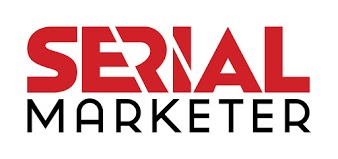The mission statement doesn't include making life easier for brands. (from f8 2008; image credit: me)
Marketers, Facebook is not about You
originally published in MediaPost&39;s Social Media Insider
Facebook&39;s f8 event last week will have lasting ramifications for the network&39;s 800 million users. It will also have implications for brands, but the biggest takeaway should that if you&39;re a marketer, Facebook was never about you, it&39;s not about you, and it will never be about you. I&39;m sorry to the handful of laptops and iPhones that were just hurled across the room, but the truth hurts.
In case you missed last week&39;s news, f8 effectively changed the company&39;s mission statement from "giving people the power to share and make the world more open and more connected" to "making it so easy to share stuff that your own mother will get tired of hearing from you." My agency described a lot of the changes in a report that includes what matters for brands. Until all of Facebook&39;s changes roll out, it will be difficult to make definitive statements about which changes benefit marketers and which will make reaching consumers more difficult, but in the meantime marketers should be paying especially close attention to their Facebook page and campaign performance.
Whenever Facebook announces a change, marketers get in a tizzy reading every tea leaf, wondering what every change means for them. That&39;s a good thing. I cleared my schedule for f8 because these changes matter. Often, marketers feel neglected, as if Facebook is going ahead with all these changes and not considering what will happen to brands.
The problem for marketers is that Facebook CEO Mark Zuckerberg does not lie awake at night thinking about what will happen to brands. f8 is a conference for developers. I remember going to f8 in 2008, before Facebook recorded billions in advertising revenue, and I was a complete outcast. Facebook&39;s user base and revenues have grown exponentially, but the attitude is largely the same.  The point of f8 is "to bring together the developers, entrepreneurs and innovators who are building a more social web." Yes, some marketers count among those groups, but they&39;re not the target, and they probably never will be.
Instead, Zuckerberg and his colleagues used their f8 stage time to talk about changes for the network&39;s users. These include changes to the homepage and profile layouts. Facebook even dared to change how users can post birthday greetings to their friends.
In the process, Facebook created a lot of speculation for what will happen to brands. Will it still matter for marketers to amass large numbers of Facebook fans? Will posting more often lead to more engagement? Will every brand need an app to stay relevant? Will Facebook users flock to new features like Friend Lists, and will they embrace the new Timeline? Will Sponsored Story ads be the only way for marketers to truly stand out?
There are lots of answers accordingly, but most of the answers depend on how consumer behavior changes on Facebook, what kind of brand and category you&39;re working with, and how your brand has built its social marketing program so far. The fact that there aren&39;t clear answers today underscores how these questions aren&39;t the first priority for Facebook&39;s executive team.
If you read through Facebook&39;s official four-page PDF called "f8 for Marketers," most of the answers end with two words: Sponsored Stories. Even the section on building applications recommends that 20% of your budget goes to building an app and 80% on promoting it. The cynic in me wondered whether all of Facebook&39;s changes were designed to blunt the virality of branded content and require more of a reliance on advertising. That strikes me as too calculating for Zuckerberg. This is not someone who changes the interface in order to juice media spending. There are many easier and direct ways that he could do that.
Instead, we&39;re left with a lot of ambiguity, but a few things are perfectly clear. Facebook has more than 800 million users, and recently had half a billion people using the site in one day. The time spent on Facebook dwarfs the numbers for any other media property. The rate of Facebook&39;s mobile usage is accelerating quickly, and soon more than half of its audience will be using its mobile properties. There is no question that marketers need Facebook more than Facebook needs marketers.
What do you do about it? Be engaging. Be relevant. Figure out what&39;s social about your brand. Set objectives. Measure results. Budget accordingly. Zuckerberg may not care about what you do, but you still should.






People reacted to this story.
Show comments Hide commentsGood articles or blog posts and it is so very helpful.